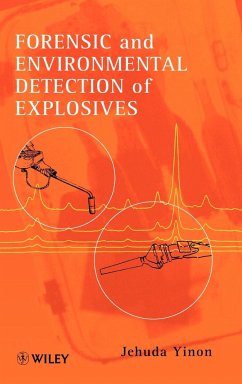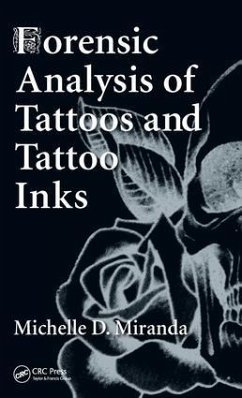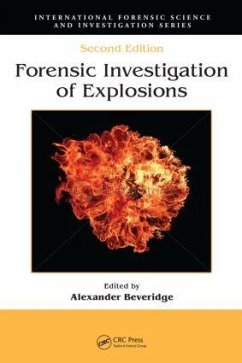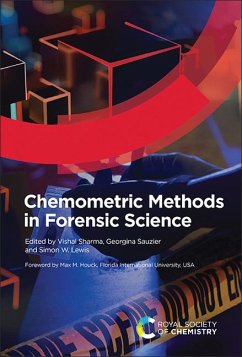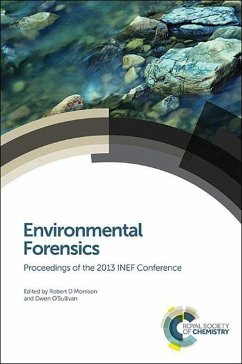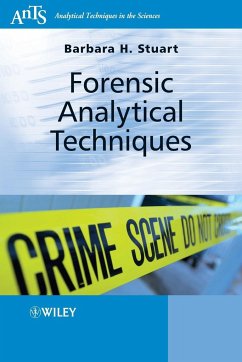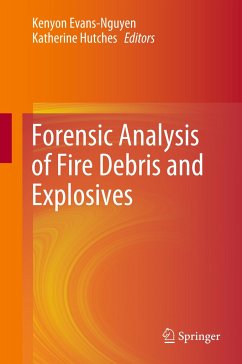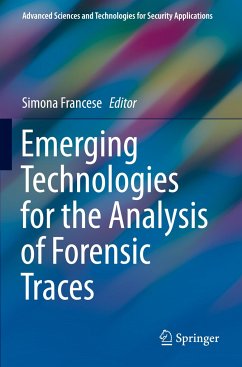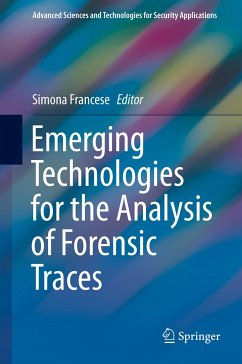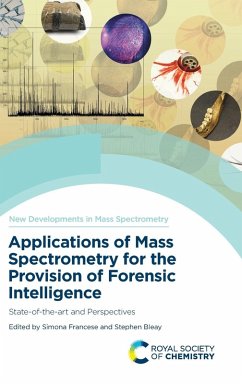
Forensic Analysis on the Cutting Edge
New Methods for Trace Evidence Analysis
Ed. by Robert D. Blackledge

PAYBACK Punkte
80 °P sammeln!
This title brings forensic scientists and chemists up-to-date on the latest instrumental methods for analysing trace evidence, including mass spectrometry, image analysis, DIOS-MS, ELISA characterization, statistical validation, and others. Illustrates comparative analysis of trace evidence by both old and new methods. Explains why some newer methods are superior to older, established methods. Includes chapters on analysis of DNA, ink, dyes, glitter, gun powder traces, condom trace evidence, footwear impressions, toolmark impressions, surveillance videos, glass particles, and dirt. Discusses applications such as mass spectrometry, image analysis, desorption-ionization on silicon mass spectrometry (DIOS-MS), ELISA characterization, and statisticalvalidation.
An in-depth exploration of the latest methodologies, tools, and techniques for analyzing trace evidence
With chapters written by scientists who are acknowledged leaders in their specialty areas, this resource provides real-world, up-to-date information on state-of-the-art technologies in the analysis of trace evidence. Such evidence often provides proof of an association between a suspect and a victim or crime scene. With numerous case histories, this reference illustrates the analysis of evidence by both traditional and new methods. Forensic Analysis on the Cutting Edge covers:
_
A wide range of methodologies, including mass spectrometry, Fourier transform infrared microspectroscopy, Raman microspectroscopy, statistical validation, and others
_
The analysis of ink, condom trace evidence, glitter, fibers, glass cuts, pressure sensitive tapes, automotive airbag contact, and more
_
Chemical detection strategies for latent invisible trace evidence, including blood stains, fingerprints, and pepper spray
_
The application of cathodoluminescense to forensic examinations
With its detailed explanations and practical examples, this will be a valuable hands-on reference for scientists in forensic laboratories worldwide. It will also be an informative, fascinating resource for mystery writers, attorneys, criminal investigators, and others who want to go beyond the basics of trace evidence analysis.
With chapters written by scientists who are acknowledged leaders in their specialty areas, this resource provides real-world, up-to-date information on state-of-the-art technologies in the analysis of trace evidence. Such evidence often provides proof of an association between a suspect and a victim or crime scene. With numerous case histories, this reference illustrates the analysis of evidence by both traditional and new methods. Forensic Analysis on the Cutting Edge covers:
_
A wide range of methodologies, including mass spectrometry, Fourier transform infrared microspectroscopy, Raman microspectroscopy, statistical validation, and others
_
The analysis of ink, condom trace evidence, glitter, fibers, glass cuts, pressure sensitive tapes, automotive airbag contact, and more
_
Chemical detection strategies for latent invisible trace evidence, including blood stains, fingerprints, and pepper spray
_
The application of cathodoluminescense to forensic examinations
With its detailed explanations and practical examples, this will be a valuable hands-on reference for scientists in forensic laboratories worldwide. It will also be an informative, fascinating resource for mystery writers, attorneys, criminal investigators, and others who want to go beyond the basics of trace evidence analysis.




